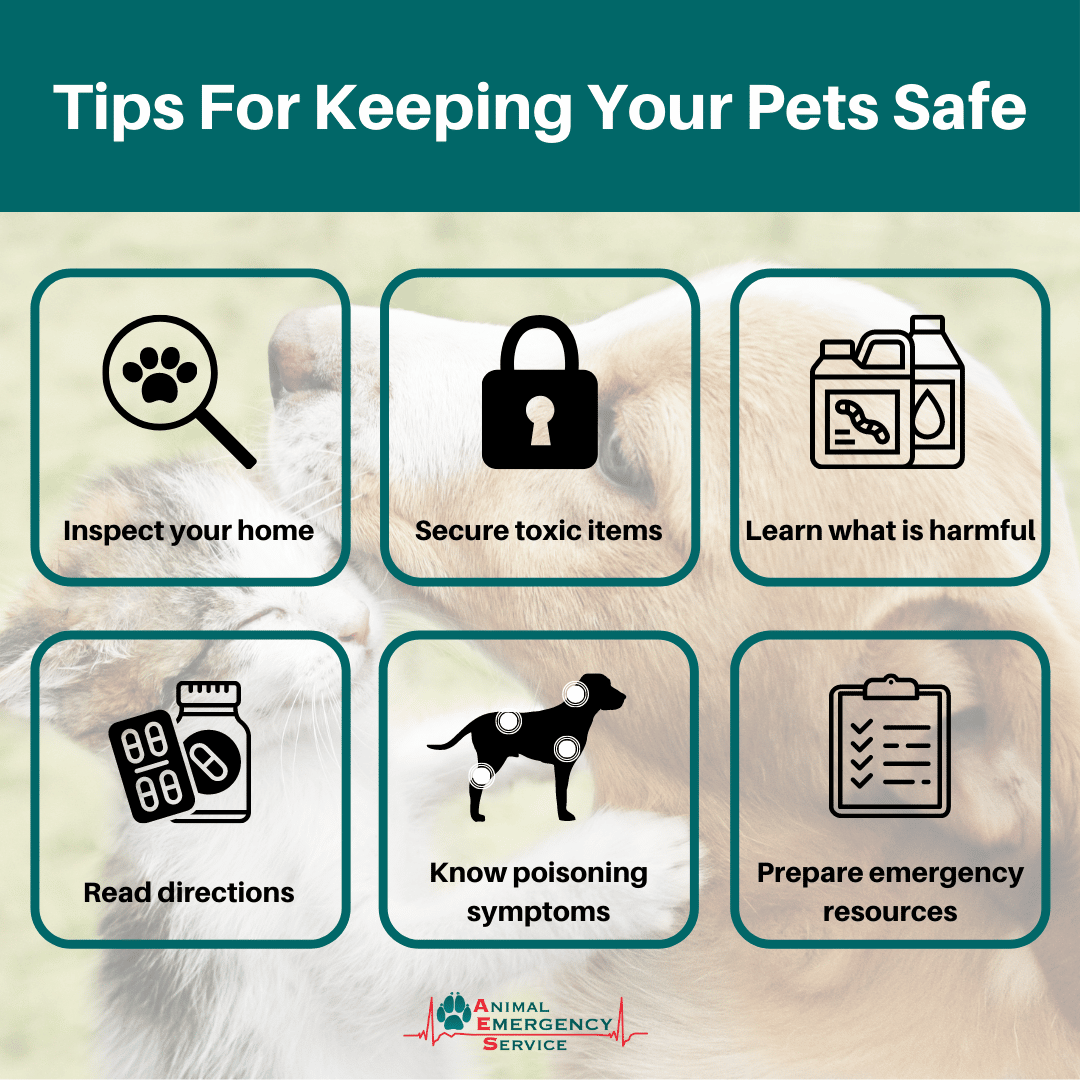The home can be a dangerous place for our pets
Our beloved pets can find their way into all sorts of trouble. While we don’t want to think about them eating things they shouldn’t, accidental poisoning are more common than you could imagine. In fact, these are some of the most common cases we see in our hospitals. A pooch may find some leftover Easter eggs or get their paws on rat bait, leaving them severely ill. You might not know, but inside our homes and even in our backyard, are full of items potentially poisonous to our pets, some surprisingly dangerous.
It’s important o know what these poisons are, as well as what to do if your pet comes into contact or ingests them. This guide will provide you with information on the types of poisons your pet could encounter, signs and symptoms of common poisons, treatment, and how to avoid accidental poisoning.
What you’ll learn
- What is poisoning (toxicity)?
- What is poisonous to pets?
- What are the signs and symptoms of poisoning?
- Can cats and dogs survive being poisoning?
- What to do if your pet has been poisoned
- How is poisoning treated by vets?
- How to prevent poisoning in your pet
- How to prevent your pet from being intentionally poisoned
What is poisoning (toxicity)?
A poison or toxin can be a natural or synthetic substance, in either a gas, liquid or a solid form. Should these substances be breathed in, ingested, absorbed through the skin, or injected, they can cause severe harm and in some cases even death. Typically, our pets are poisoned by ingesting something they shouldn’t . However, they don’t have to just eat or drink a toxic substance to become poisoned. Even just being exposed to a toxin through contact can be enough to cause a serious case of poisoning. For example, accidental administration of dog tick and flea treatment onto a cat’s skin is highly dangerous.
Poisoning occurs when a large enough dose enters the body, causing severe damage to the cells, tissues and/or organs which can lead to death if treatment isn’t sought quickly. Depending on the substance the dose could actually only be a very small amount. These damaging reactions can include:
- Attacking blood cells, which can cause internal bleeding
- Limiting cellular functions, such as the ability to process protein
- Attacking the central nervous system, which can affect the brain and heart
- Slowly shut down organs, such as the lungs, liver or kidneys
What is poisonous to pets?
Our homes contain a number of everyday items that while they aren’t dangerous to us, for our pets they can be harmful. With our pets being inquisitive, quick, and sometimes sneaky, combined with a cupboard door left open or a lid left off a container, it can make for a dangerous situation.
Most, if not all of these poisonous items fall into one of three types: human food, environmental, or household items.
Human Food
Many of us are sure to be guilty of feeding our pets from our plates. While it may be hard to say no to those big sad eyes when they beg us for scraps, it’s important to remember most human food isn’t good for our pets. Even the most basic ingredients can in fact be quite dangerous. The most common toxic food to our pets is:
Chocolate
- Dairy
- Fatty meat scraps
- Macadamia nuts
- Onion and garlic
- Salt
- Sultanas, raisins, and grapes
- Xylitol
Visit our A-Z guide on toxic foods for pets blog for a full list of food to avoid feeding your pet.
Environmental
It’s not just inside our home where potential toxins can be found, but also outside – even in our own backyards. You may be surprised to know the deadly poisons your pet may be sharing their yard with.
Plants
Often overlooked are plants and flowers. While they certainly brighten up our homes and yards, unfortunately, there are many types of indoor and outdoor plants and flowers that are dangerous to our pets. The list of toxic plants and flowers is extremely long, but the most common are:
Azaleas and rhododendrons
- Lilies
- Moses in a cradle
- Sago palms
- Yesterday-today-tomorrow
For a full list of plants and flowers toxic to our pets visit our blog.
But fear not, this doesn’t mean you can’t have a garden or even bring the outdoors indoors – there are just as many non-toxic and beautiful plants both you and your pets can enjoy. Visit our list of pet-friendly plants and flowers.
Animal toxins
It’s not just inanimate objects that can be poisonous to our pets. Other animals can poison our furry friends by releasing a toxin if they feel threatened. Australia, and Queensland in particular, are home to a number of animals who have this defensive ability. The most serious and common animal poisonings are:
- Cane toad poisoning
- Insect bites or stings, such as bee stings
- Puffer fish, also known as toad fish or blowfish
- Snake bites
- Tick paralysis
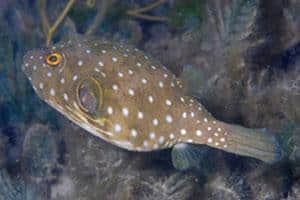
Puffer fish contain one of the deadliest natural poisons
Household Items
Think about the items you use on a day-to-day basis at home – detergent when you wash the dishes, a painkiller for a headache, bait to get rid of a pesky snail or rat problem. Often we forget how dangerous these day-to-day items can be to our pets, and even to ourselves should we ingest them. Sometimes what our pets find appealing or try to eat isn’t always obvious to us. Below are some of the common everyday household items we’ve seen pets eat.
Human drugs and medications
It’s common to see pets, especially cats, come across a stray tablet on the floor and end up eating it. Our pets digest and react to medications differently from humans. It’s not just stray tablets to be aware of, dogs have been known to use asthma puffers as new chew toys, piercing the ventolin container.
Prescription medication isn’t the only type of medication that poses a threat to our pets. Our hospitals are seeing more and more pets who have ingested illicit drugs. Marijuana ingestion is a poisoning we see on a regular basis.
Medications and drugs commonly ingested include:
- Alcohol
- Anti-anxiety and anti-psychotic medications, such s Prozac and sleeping tablets
- Cigarettes
- Illicit drugs, such as marijuana
- Painkillers, such as Panadol and Nurofen
- Ventolin from asthma puffers
Pet Medications
It’s not just human medications that need to be kept away from our furry friends, but also pet medications. Pet medications are designed to taste good so our pets will eat them. Because of this, it’s always a good idea to dispose of or keep any spare pet medications away from furry paws. Should our pets get into their medications or into a fur sibling’s medications the consequences can be quite deadly, especially if they ingest a dose for a pet double their size.
It is always important to follow your vet’s instructions and the instructions on the label when giving medication. This is especially true for flea and tick treatments for cats. Most flea and tick treatments contain permethrin which is highly toxic to cats.
Cleaning Products, Chemicals, and Poisons
Even common household cleaning products are potentially deadly to our pets. With our pet’s attention on us as we clean the house, it’s important that the substances we use and kept safely locked away after we finish. While some household cleaners may be labeled as ‘natural’ or ‘environmentally friendly’ this does not mean they are safe. These types of cleaners can still cause severe reactions should our pets come in contact with them. General cleaners such as glass and surface cleaners are usually harmless, but it is still best to keep them out of reach of your pet.
Common cleaning products and poisons to keep away from pets include:
- Batteries – if chewed its acidic substance can leak out causing burns to your pet’s mouth, esophagus, and/or stomach
- Cleaning products – bleach and detergents are one of the leading causes of pet poisonings
- Coolant and antifreeze – due to its sweet smell and taste – causing acute kidney failure
- Fertiliser
- Gases, such as carbon monoxide
- Hand sanitiser contains alcohol which is poisonous to our pets, however, it is rare that pets are poisoned this way due to the amount they would have to ingest
- Insecticides and pesticides, such as snail and rat bait
- Paint thinner and stripper
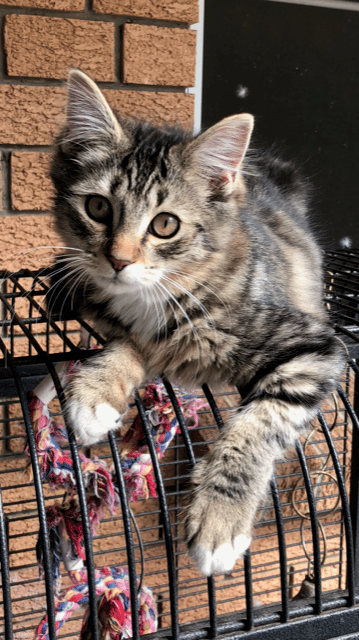
What are the signs and symptoms of poisoning/toxicity?
The signs and symptoms of poisoning will vary depending on what and how much of the toxic item your pet has ingested. Signs and symptoms can range from mild and general to more severe signs.
Mild and general signs include:
- Vomiting
- Diarrhoea
- Lethargy
- Coughing and sneezing
- Drooling
- Lack of appetite
- Drinking more than usual
- Skin irritation, swelling, or inflammation
- Increased or unable to urinate
- Abdominal pain
- Pale gums
The more severe signs include:
- Increased heartbeat
- Shaking and muscle tremors
- Lack of coordination
- Trouble breathing
- Seizures
- Extreme excitability or agitation
Not all pets who have been poisoned will display these signs or symptoms, in fact, some pets might not seem sick at all. This could be due to one of two reasons. Some reactions take longer to occur than others, or your pet may not have ingested enough to become sick as some substances are only toxic if they are ingested in large quantities. For these reasons, taking the ‘wait and watch’ approach isn’t advised as generally, the result is organ failure within 72 hours.
The biggest sign your pet may have potentially ingested something toxic is if you find an open container, packaging that has been torn open, or an empty wrapper. If it is possible your pet may have been the culprit you should assume they may be at risk of being poisoned.
Can cats and dogs survive being poisoned?
Recovering from being poisoned is dependent on what the toxic substance was, the dose, and how long before treatment was started. The sooner treatment for any type of poisoning is sought, the greater the chance both cats and dogs will survive. This is due to the poison having little time to make its way through your pet’s system and do any damage to their cells, tissues, or organs. This also allows the greatest time for treatment to be started to reduce the effect of the toxicity. However, the age, size, and overall health of your pet can play a significant part in their recovery.
Depending on the toxin, cats can be less likely to recover from being poisoned due to a few reasons, including:
- Size – being smaller in size, even the smallest dose can prove fatal
- Grooming – being frequent groomers, they have a greater chance of ingesting toxic substances from their coats
- Ability to process chemicals – cats process chemicals differently form dogs, and in some cases cannot process certain chemicals at all
- Lifestyle – if your cat is an outdoor cat, with their roaming nature you may be less likely to know if they have been poisoned or even what the toxin is
Overall, any case of poisoning can have severe consequences. Typically, mild cases of poisoning have high recovery rates. In severe poisoning cases or cases where treatment was delayed the chance of recovery is extremely low. When pets do recover from severe poisoning there can also be long-term damage to their overall health.
What to do if your pet has been poisoned
Most potentially toxic substances will only cause unpleasant side effects, but some can be fatal if treatment is not sought, so it is always important to err on the side of caution. If you believe your pet has been poisoned remove them immediately from any possible toxin.
If your pet is already showing signs of poisoning, visit your vet immediately. If no signs or symptoms are being displayed and your pet seems to be acting normally, we still recommend you call your vet immediately. Your vet will be able to advise you on whether to bring your pet straight to them or on other steps to take.
Never try to induce vomiting. It is always possible what your pet has ingested is caustic which can cause severe inflammation and irritation of the esophagus if it is vomited back up.
If you believe the toxic substance may have come in contact with your pet’s fur or paws, try to keep them from grooming themselves and give them a bath in neutral pet shampoo.
How is poisoning treated by vets?
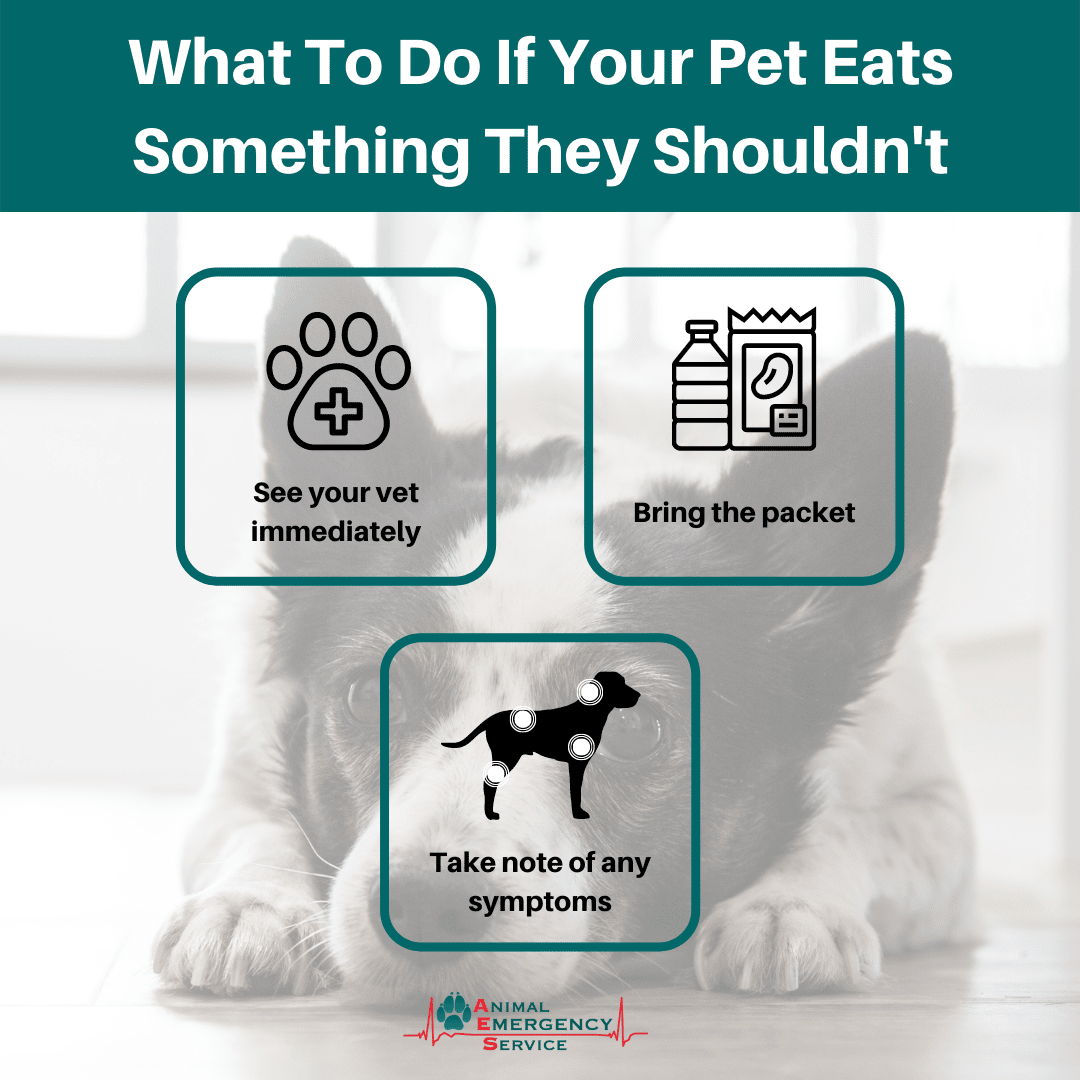
Your vet will treat poisoning in two ways. They will neutralise and remove the toxin so as it isn’t further absorbed into the body, and then they will administer supportive measures to help in your pet’s recovery. When you arrive your vet will first perform an examination and tests to confirm the poisoning diagnosis in order to start treatment. This includes:
- Blood and/or urine tests to assess the potentially toxic effects as some can lead to organ failure
- Checking blood oxygen levels can help to determine the degree of poisoning
- Checking vital signs, including blood pressure, heart rate, and body temperature
Once it is known what the toxic substance is, treatment can begin, which may include:
- Antidote to counter the effects of the poison, however, not all poisons have an antidote
- Fluid therapy to maintain hydration, as well as to dilute the toxin and flush the toxin out of the body faster, and maintain blood flow
- Anti-seizure medication or muscle relaxants
- Decontamination through washing if the toxin came in contact with their coat or skin
- Inducing vomiting to remove the toxic substance from the stomach
- Administering activated charcoal which binds with the toxin preventing it from being further absorbed
- Blood or plasma tranfusions
- Oxygen therapy if there are breathing difficulties
- Dialysis may be needed for filtering the kidneys in severe cases
- Other medications may be needed, such as for regulating the heart rate
- Vital signs will be monitored regularly in order to control the symptoms and to amend treatment
- Further tests will be conducted in order to monitor improvement or deterioration
In severe cases, a lengthy stay in hospital may be needed.
How to prevent poisoning in your pet
While the majority of poisoning cases happen by accident, the best way to ensure your pet stays safe is to keep any potentially dangerous food and medications out of reach and to store any dangerous products in contains and cabinets. While it may sound extreme and even silly, think of your pet like you would a baby or a toddler. If a toddler could get into something they shouldn’t, then a dog and even a cat can as well. Use this thinking to pet-proof inside and outside your home. It is also good to be aware that while placing something up high, such as medications on top of the fridge, cats with their jumping ability can still get to them. So, to be safe, place all potentially dangerous and toxic substances behind closed doors and draws.
What else can you do to protect your pet from being poisoned? There are many other simple measures you can put in place to avoid any accidental poisonings, including:
- If your pet is prone to scavenging for food or other items from the bin, make sure you safely dispose of medications and chemicals, and food
- If you are using toxic cleaning chemicals or poisons in your home or in the backyard, block access to this area from your pet until it is safe for them to go back in
- Try alternatives to baits, such as mice traps
- Only give medication prescribed by your vet to your pet
- Store your pet’s medication in a separate area from your own to avoid accidentally giving your pet the wrong medication
- Don’t let your pets play in areas where chemicals are kept
- Keep garage floors free from potentially toxic substances, in case your pet manages to find their way inside
- Only feed your pet a balanced diet
- No matter how small, clean up any spills immediately
- Keep chemicals in clearly labeled, sealed containers

Store medications in cabinets out of reach of pets
How to prevent your pet from being intentionally poisoned
Most pet poisonings are purely accidental, however, occasionally pets become the victims of intentional poisoning. Why do these acts of cruelty happen? Some cases of intentional poisoning are completely random and make little sense, such as tainted meat being found in dog parks. In other rare cases, they occur because of a neighbourly dispute.
As a pet owner, what can you do to prevent an intentional poisoning?
- Keep your pet away from areas they shouldn’t be in, such as neighbour’s yards
- Train them not to bark unnecessarily through crate and reward-based training
- Supervision is key – don’t let your pet run loose unsupervised
- Always walk your dog on a lead
- Train your dog not to take food from anyone besides yourself for their own safety
If you feel your pet is in danger of being poisoned, be on the lookout for objects or food in your yard.
Should you suspect a poisoning has taken place, or have any information about an intentional poisoning, contact your local Police station or the RSPCA.
If you suspect your pet has been poisoned or your pet has swallowed an item you are concerned about, visit your nearest Animal Emergency Service hospital or your local vet immediately.

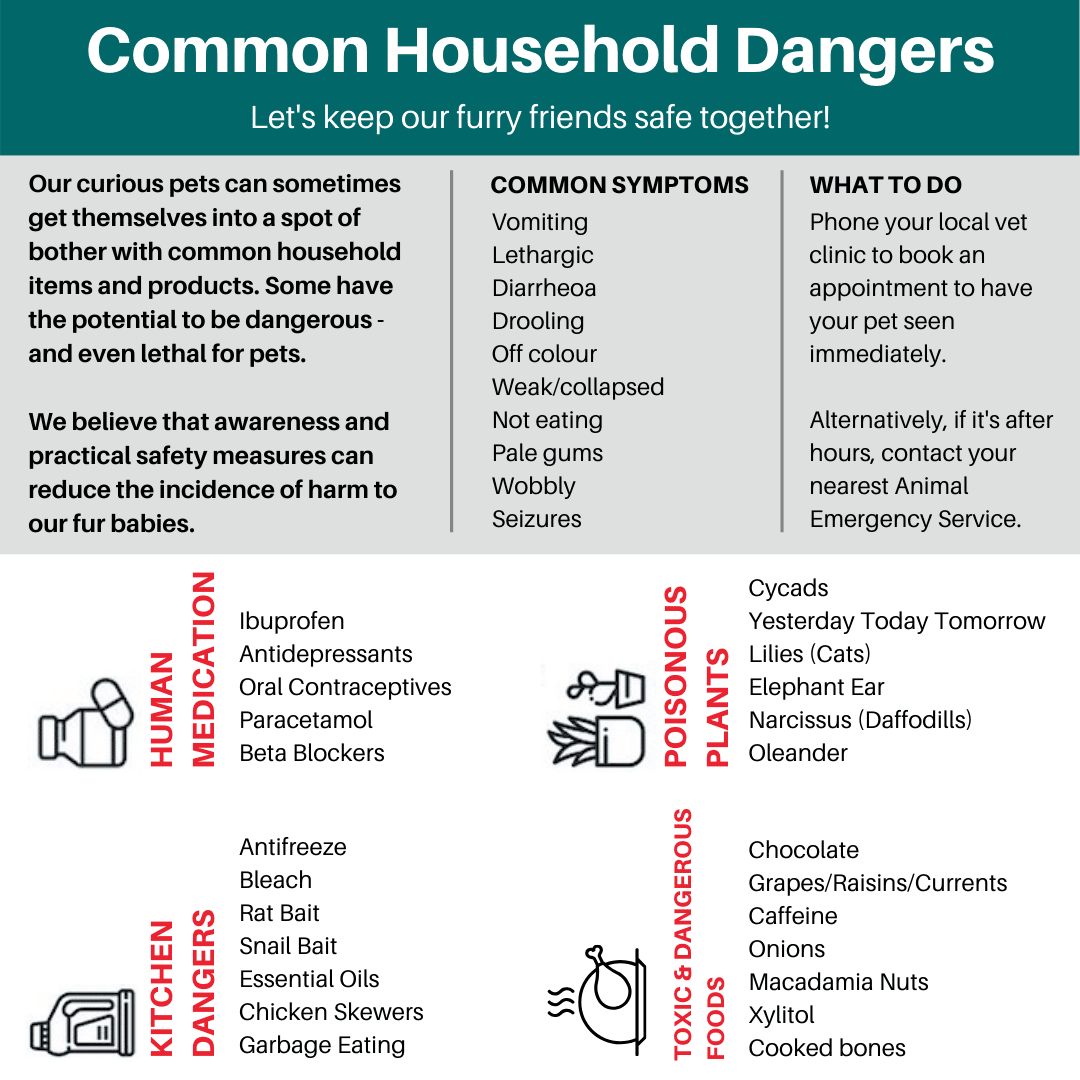
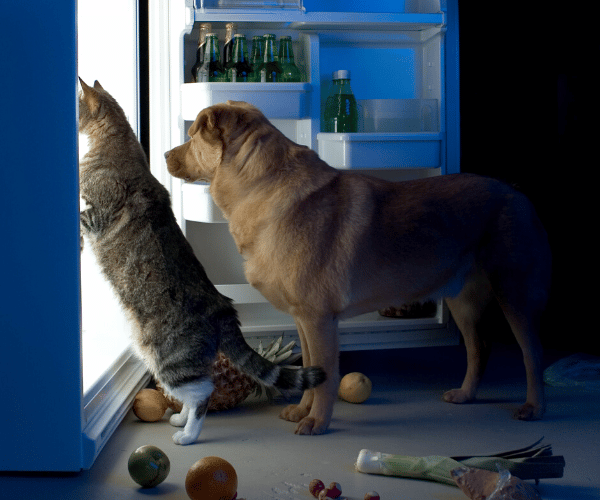 Chocolate
Chocolate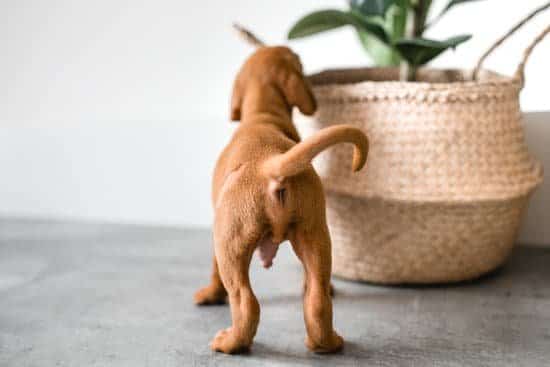 Azaleas and rhododendrons
Azaleas and rhododendrons